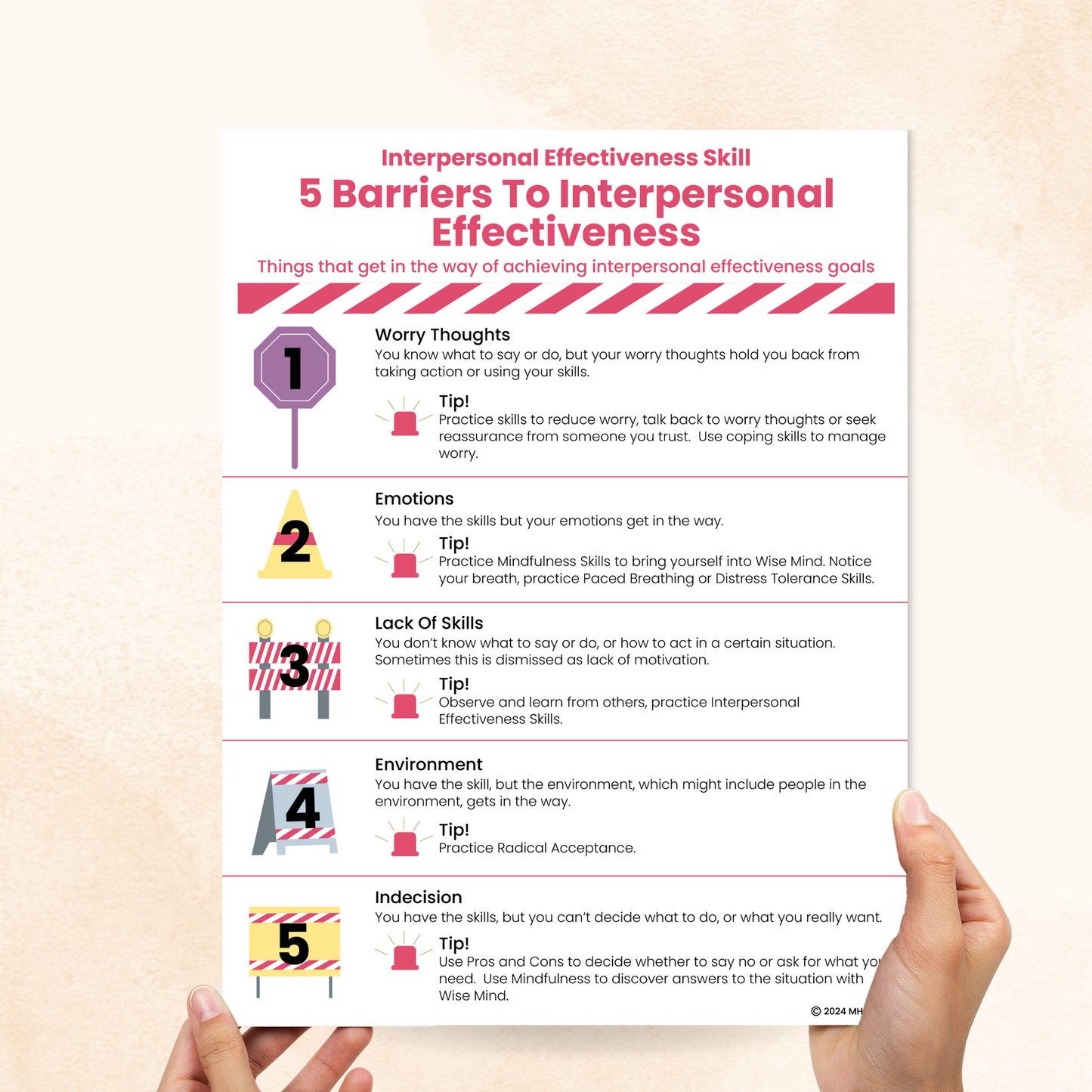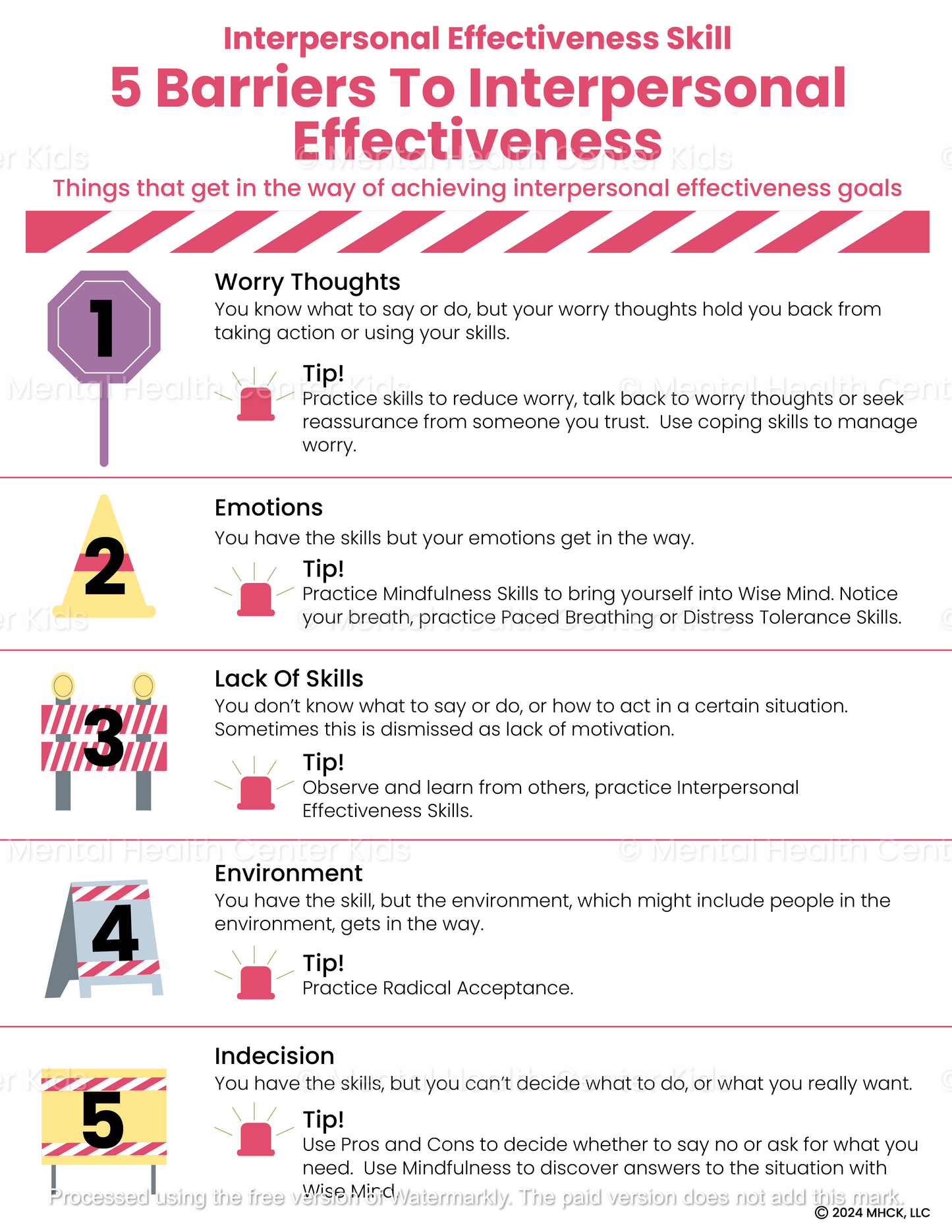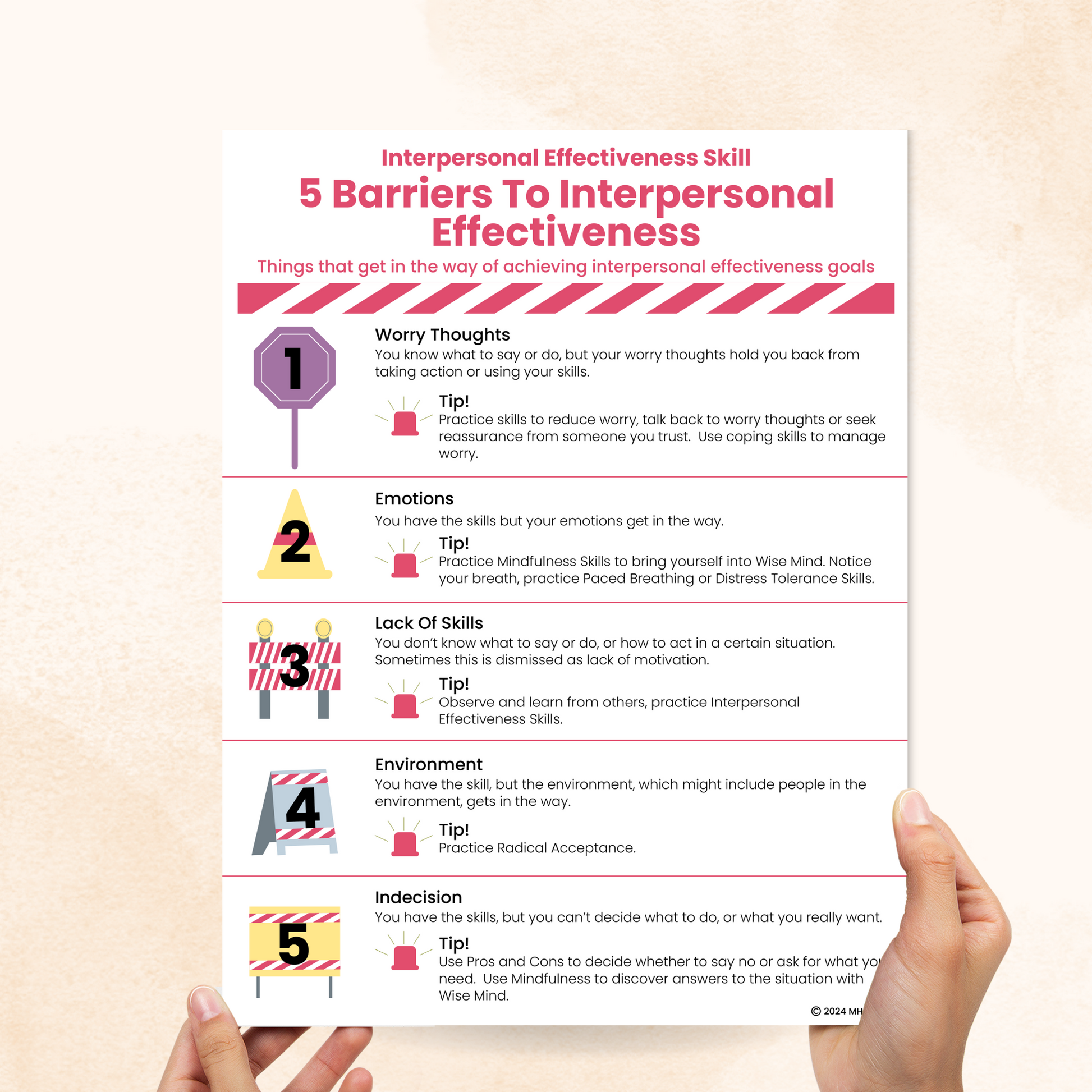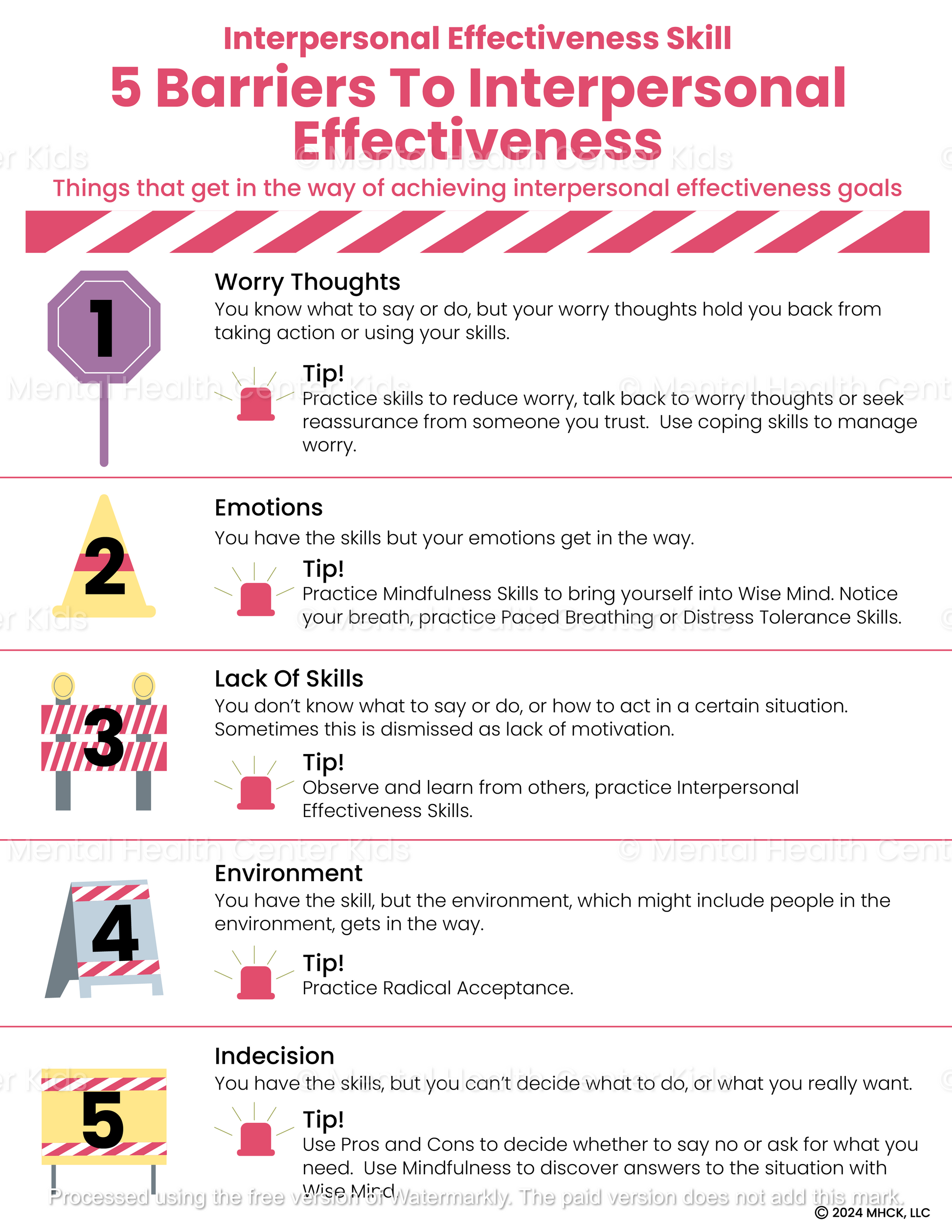Barriers To Interpersonal Effectiveness DBT Handout


Interpersonal effectiveness in Dialectical Behavior Therapy (DBT) refers to a person’s ability to manage relationships while achieving their personal goals. Some factors can hinder this, such as worried thoughts, big emotions, and being in certain environments.
The Barriers To Interpersonal Effectiveness DBT Handout shows clients common obstacles and how they can negatively impact their ability to relate to others. For example, it tells them that although they know a skill, certain people in an environment can get in the way. Then, it recommends practicing radical acceptance.
Learning these barriers can help kids and teens effectively manage their emotions in different social contexts, especially since the worksheet also equips them with suggestions. This handout can be a useful discussion tool when kids start a new school or join extracurricular activities that might cause anxiety about meeting new people.
For more strategies to overcome interpersonal effectiveness barriers feel free to check out our Troubleshooting Interpersonal Effectiveness Skills handout. Use our DBT Interpersonal Effectiveness Skills handout for a quick reference to several helpful interpersonal effectiveness skills.
*This item is an instant digital download. A link to download your files will be emailed to you once payment is confirmed.
Want more resources like this? Check out our full catalog of DBT worksheets and handouts.
References:
- Fischer, S., & Marino, J. (2019). What is DBT?. The Handbook of Antagonism: Conceptualizations, Assessment, Consequences, and Treatment of the Low End of Agreeableness, 365.
- Jeung, H., & Herpertz, S. C. (2014). Impairments of Interpersonal Functioning: Empathy and intimacy in Borderline Personality Disorder. Psychopathology, 47(4), 220–234. https://doi.org/10.1159/000357191
- Shea, L. (2020). The courage to be: Using DBT skills to choose who to be in uncertainty. Journal of Humanistic Psychology, 61(2), 260–274. https://doi.org/10.1177/0022167820950887
- McConnell, C. R. (2004). Interpersonal skills. The Health Care Manager, 23(2), 177–187. https://doi.org/10.1097/00126450-200404000-00012
- Thompson‐Hollands, J. (2023). Introduction to the special section on social relationships and posttraumatic stress disorder treatment: Harnessing the power of significant relationships. Journal of Traumatic Stress, 36(3), 479–483. https://doi.org/10.1002/jts.22922
- Instant digital download
- File: PDF
- Size: 8.5" x 11"



